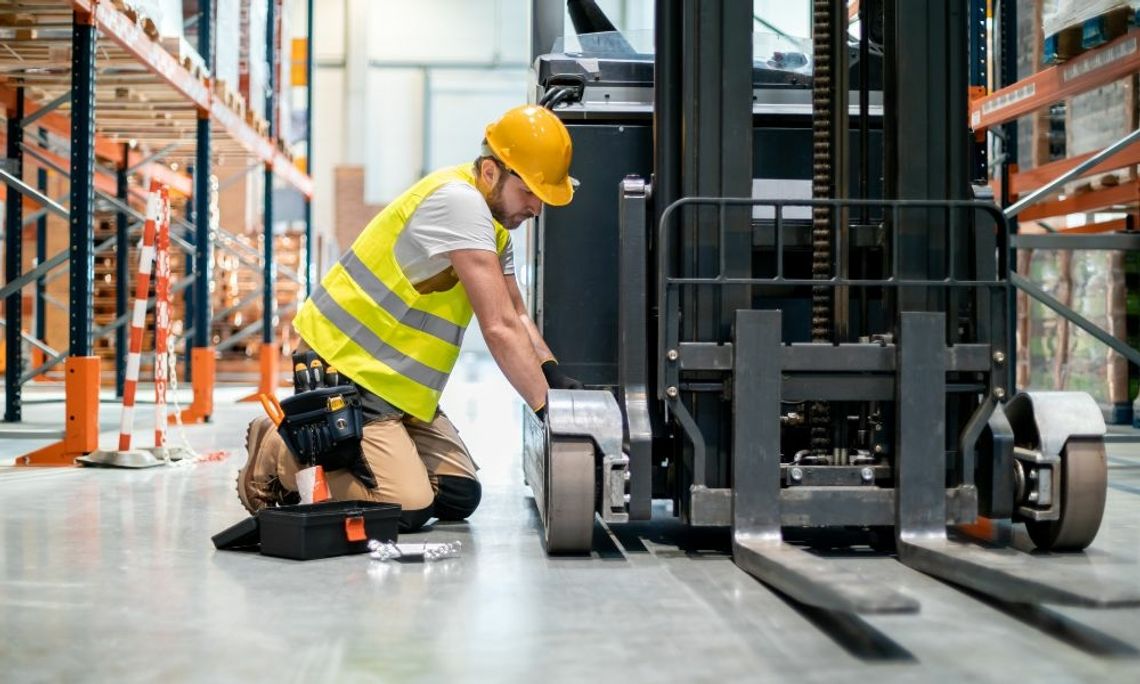A well-maintained forklift safely performs heavy lifting in warehouses and other industrial sites. Keeping a lift truck in good condition requires an investment of time and money, but the alternative is dangerous and far more costly. Use these three tips for saving money on forklift maintenance.
1. Perform Inspections and Preventive Maintenance
Regular inspections and scheduled maintenance can help you identify lift truck problems before they escalate, preventing more expensive repairs and breakdowns. Lift truck operators should perform inspections before every shift using a checklist that covers essential components, including the tires, brakes, and electrical systems.
Perform oil changes, filter replacements, and other routine tasks per the manufacturer’s guidelines. These basic tasks optimize the lifespan of all components and improve the machine’s performance.
2. Charge the Battery Correctly
Depending on the type, lift truck batteries typically cost between $2,000 and $6,000. This pricing for an essential component makes proper forklift battery maintenance key to saving money.
Lead-acid batteries can last up to about 1,500 charging cycles. To maximize the lifespan of your battery, only charge the battery after it falls to 20 to 30 percent of its capacity and recharge it completely.
Charging a lead-acid battery takes about 8 to 10 hours, and rushing the process will backfire. Undercharging is a costly forklift battery charging mistake because it causes sulfate crystals to form on the plates, leading to premature battery failure.
3. Train Operators on Best Practices
Finally, operator training is an investment in equipment longevity and workplace safety. Properly trained operators know how to handle the equipment and reduce wear and tear.
After training, operators are less likely to drive roughly, overload the truck, or use improper attachments. These mistakes can cause significant damage to lift trucks and loads.
Conduct refresher training sessions periodically to reinforce best practices. All operators should know how to identify possible problems and understand the importance of promptly reporting problems to supervisors.
Inspections and preventive maintenance, charging the battery correctly, and training operators on best practices are three ways to protect your business from runaway costs. Use these tips to maintain a safe and productive materials handling environment.


Comment
Comments